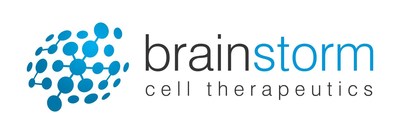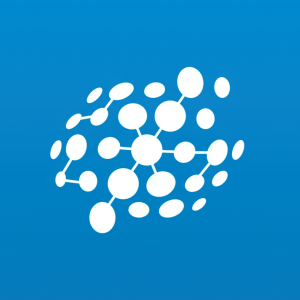BrainStorm Cell Therapeutics Announces Peer-reviewed Publication of Biomarker Data from NurOwn's® Phase 3 Clinical Trial in ALS
NurOwn treatment resulted in a positive impact on important CSF biomarkers relevant to ALS compared to placebo.
Significant changes in multiple ALS disease pathways support NurOwn's mechanism of action and complement clinical effects observed in ALS.

The study analyzed forty-five biomarkers and identified three that are predictive of clinical outcomes in debamestrocel-treated participants, including neurofilaments light (NfL), LAP/TGFb1 and Galcetin-1. Treatment with debamestrocel led to significant changes in
"The publication of these findings is important, because it demonstrates a potential biologic mechanism by which modified mesenchymal stem cells (debamestrocel) may benefit patients with ALS," said Dr. Anthony J. Windebank, MD, Professor of Neurology and Judith and Jean Pape Adams Professor of Neuroscience, Mayo Clinic College of Medicine and Science. "There was a strong signal in the phase III trial suggesting a benefit of these cells in a sub-group of patients with less advanced disease. The fact that BrainStorm has reached agreement with FDA through a special protocol assessment (SPA) is also very encouraging that the agency is firmly committed to working with the company to rigorously evaluate the clinical benefit of debamestrocel."
Stacy Lindborg, PhD, Co-Chief Executive Officer of BrainStorm Cell Therapeutics, added: "Biomarkers are becoming an increasingly important part of drug development in ALS. Having these data peer reviewed and published in a prestigious journal is an important milestone in the NurOwn® development program. We look forward to confirming these findings in our upcoming Phase 3b trial, which is in planning for the most expeditious path forward to bring NurOwn to people living with ALS."
About the Biomarker Study
The study was conducted by researchers at Massachusetts General Hospital, University of
Data from the paper are from a randomized, double-blind, placebo-controlled Phase 3 trial, evaluating the safety and efficacy of repeat intrathecal doses of NurOwn® in study participants.
"These findings are encouraging and provide preliminary evidence that debamestrocel may be effective in treating ALS. The impact on biomarkers suggests debamestrocel targets inflammation and neurodegeneration," said Chaim Lebovits, President and CEO of BrainStorm Cell Therapeutics. "We are grateful to the trial participants, lead authors Dr. Merit Cudkowicz and Dr. Robert Brown, in addition to all of the Phase 3 Principal Investigators. This manuscript, nor the insights into known and emerging ALS biomarkers wouldn't exist without them."
About NurOwn®
The NurOwn® technology platform (autologous MSC-NTF cells) represents a promising investigational therapeutic approach to targeting disease pathways important in neurodegenerative disorders. MSC-NTF cells are harvested from each person with ALS and are manufactured using an innovative and proprietary process, to secrete neurotrophic factors to target specific neurodegenerative diseases. The lead program for NurOwn is for the treatment of ALS. BrainStorm's long-term commitment to ALS is demonstrated in preclinical research and a series of clinical studies, all of which have been published in peer-reviewed journals.
The NurOwn clinical program has generated valuable insights into the pathology of ALS, as well as disease progression and treatment. Since the initial Phase 3 readout, BrainStorm has shared the full dataset through rigorous peer-reviewed analysis, including: quantification of Floor Effect, which had been noted, but never before explored in depth; evaluation of multiple pre-specified biomarkers, collected at seven different points across 20 weeks during the trial, allowing a longitudinal view; and analysis of genetic data, which represents one of the first ALS trials to prospectively invoke pharmacogenomic analysis of clinical outcome, offering great promise for the development of future treatments for ALS.
About BrainStorm Cell Therapeutics Inc.
BrainStorm Cell Therapeutics Inc. is a leading developer of innovative autologous adult stem cell therapeutics for debilitating neurodegenerative diseases. BrainStorm holds the rights to clinical development and commercialization of the NurOwn® technology platform used to produce autologous MSC-NTF cells through an exclusive, worldwide licensing agreement. Autologous MSC-NTF cells have received Orphan Drug designation status from the
Notice Regarding Forward-Looking Statements
This press release contains "forward-looking statements" that are subject to substantial risks and uncertainties, including statements regarding meetings with the
CONTACTS
Media:
Lisa Guiterman
Phone: +1 202-330-3431
lisa.guiterman@gmail.com
IR:
Michael Wood
Phone: +1 646-597-6983
mwood@lifesciadvisors.com
Manuscript Summary
Treatment with debamestrocel led to significant changes in
These changes included increases in anti-inflammatory and neuroprotective markers suggesting a potential ability to reduce inflammation and protect neurons, and decreases in inflammatory and neurodegenerative markers indicating a possible reduction in disease activity and nerve cell damage. For example, a significant reduction from baseline of
Predictive Biomarkers: Certain biomarkers, such as baseline NfL, LAP/TGFb1 and Galectin- 1, were found to be predictive of clinical outcomes in debamestrocel-treated participants.
Logo: https://mma.prnewswire.com/media/1166536/BrainStorm_Logo.jpg
![]() View original content:https://www.prnewswire.com/news-releases/brainstorm-cell-therapeutics-announces-peer-reviewed-publication-of-biomarker-data-from-nurowns-phase-3-clinical-trial-in-als-302112956.html
View original content:https://www.prnewswire.com/news-releases/brainstorm-cell-therapeutics-announces-peer-reviewed-publication-of-biomarker-data-from-nurowns-phase-3-clinical-trial-in-als-302112956.html
SOURCE BrainStorm Cell Therapeutics Inc.






